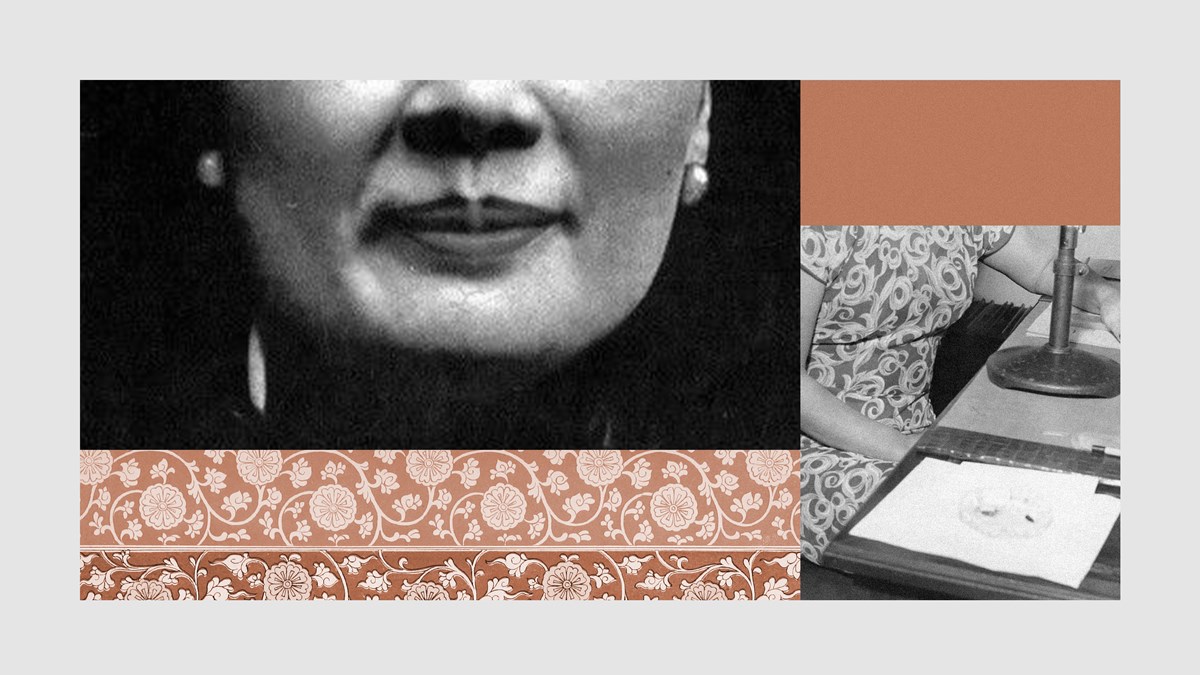The Chinese version of this article is part of a series on “12 Influential Christian Women in Modern Chinese History”.
Soong Mei-ling (1898–2003), a pivotal figure in 20th-century Chinese history, holds a distinct place as the First Lady of the Republic of China. Known by various names such as Soong Mei-ling in mainland China, Chiang Soong Mei-ling in Taiwan, and Madame Chiang in the English-speaking world, she played a critical role as the wife of Chiang Kai-shek, the leader of the Republic of China through its fifth presidency, and as the stepmother to the sixth and seventh presidents. While her political role is well recognized, her Christian faith is a lesser known yet equally vital aspect of her life.
Early life
Soong was born in 1898 to a deeply Christian family in Shanghai. Her father, Charlie Soong, studied theology at Vanderbilt University in the United States and became a Methodist pastor. He was also an influential publisher and a key leader of the Young Men’s Christian Association (YMCA) in China. Soong’s mother, Ni Guizhen, a pastor’s daughter, further instilled Christian values in their home.
Soong was the youngest of three influential sisters, each marrying prominent figures in China’s political history. Her eldest sister married H. H. Kung, a leader in the Republic of China’s government, and her second sister married Sun Yat-sen, a pivotal figure in modern China’s formation.
Educated in the United States, where she attended Piedmont College, Wesleyan College, and Wellesley College, Soong embraced Western culture alongside her Chinese heritage. She returned to China in 1917, dedicating herself to social work and education, often in collaboration with Western missionaries.
First Lady of the Republic
On December 1, 1927, Soong married Chiang, then commander in chief of the National Revolutionary Army, in a Christian ceremony. Although many viewed their marriage as politically motivated, with Chiang seeking to strengthen ties with the United States through the Soong family and Soong seeking political influence through Chiang, it was also acknowledged that there was genuine affection between them.
Chiang converted to Christianity at Soong’s mother’s request, getting baptized in 1930 amid political opposition from his own party. Battling deep depression, Soong experienced a profound spiritual awakening in 1931, during a period marked by internal and external challenges for China, including the threat of Japanese aggression. Her depression was further intensified by the loss of her mother, whose daily prayers had been a source of strength and comfort. This period marked a pivotal change in her spiritual life, driving her to more earnestly embrace her faith. Soong and Chiang maintained a daily routine of Bible reading and prayer, reflecting their shared, deep faith.
In the 1930s, Chiang launched the “New Life Movement,” a campaign aimed at reforming society through traditional values and discipline. Soong was at the forefront of the campaign, leveraging the church’s influence and advocating for Christian family values, particularly emphasizing women’s roles in societal change. Despite the movement’s focus on Christian ethics, some Chinese Christians were skeptical about the sincerity of Chiang’s Christian faith and its impact on his leadership, with critics suggesting his governance was more influenced by traditional Confucianism and possibly even ideologies of underground criminal factions.
During the 1936 Xi’an Incident, a major political crisis involving Chiang’s abduction by members of his own party, Soong aided Chiang’s peaceful rescue through her composure and strategic approach. After his release, Chiang credited his resilience during the ordeal to daily Bible reading and prayer, sharing with Soong a meaningful scripture verse: “I have created something new and different, as different as a woman protecting a man” (Jer. 31:22, GNT).
Soong’s influence as First Lady reached its peak during the Sino-Japanese War. Domestically, she organized women’s contributions to the war effort. Internationally, she sought American support for China’s resistance against Japan, leveraging her eloquence, charm, and English-language fluency to win over American politicians and the public. (Chiang couldn’t speak English, so Mei-ling served as his translator.) She earned worldwide recognition and appeared three times on the cover of Time magazine. In 1943, the Foundry Methodist Church in Washington, DC, included an image of her in a stained-glass window alongside representations of President Franklin D. Roosevelt’s “Four Freedoms,” symbolizing Asia and women’s empowerment.
Despite the Nationalist government’s victory against Japan, internal corruption, particularly embezzlement within the Soong and Kung families, fueled public discontent. The Nationalist Party’s defeat in the subsequent civil war against the Communist Party led to Mao Zedong’s takeover of mainland China in 1949, forcing Chiang’s government to retreat to Taiwan, where it continued to resist communism.
Years in Taiwan
In Taiwan, Soong continued her influential role, supporting Chiang’s governance and emphasizing Christian values as the cornerstone of anticommunist nationalism. From 1950 onward, she led the Chinese Women’s Anti-Communist and Anti-Russian Federation and the Chinese Christian Women’s Prayer Meetings, focusing on providing pastoral care within military hospitals and among the armed forces, caring for the sick, advocating for women’s rights, and fostering campus ministries. These initiatives reflected Soong’s commitment to connecting her faith with social action.
In 1953, many anticommunist refugees from mainland China arrived in Taiwan and, under the influence of Soong’s efforts, embraced Christianity. In 1950, Chiang and Soong established the Victory Chapel at their official residence and attended weekly services thereafter.
In 1961, during an Easter service, Soong gave a speech that reflected her belief in the “social gospel,” emphasizing the transformative influence of Jesus Christ and concluding that “his character ignited humanity’s imagination, and his actions became a beacon of wisdom, morality, kindness, and humanity. His pure spirit and proactive life have made him an eternal example for Christians worldwide.”
In 1967, Soong received the title of honorary chairperson by Fu Jen Catholic University and actively supported the establishment and growth of several Taiwanese educational institutions, including Soochow University, Wesley Girls High School, and the Gengxin Cultural and Educational Institute.
Legacy and controversy
Soong moved to New York following Chiang’s sudden death from a heart attack in April 1975, citing health reasons exacerbated by prolonged stress and grief. However, she remained active in Taiwanese politics through written addresses and public letters. From 1986 to 1991, she returned to Taiwan, actively participating in politics and governance while exerting significant influence over then president Lee Teng-hui.
In 1992, a Taiwanese government report on the impeachment case of “Soong Mei-ling’s improper use of her passport and the prolonged occupation of public land for her residence in Shilin” led to her withdrawal from politics, and she subsequently lived a secluded life in New York. Soong passed away at her Manhattan residence on October 24, 2003, at the age of 105. Her death was mourned across Taiwan, overseas, and even in mainland China.
While many Chinese Christians view Soong’s legacy positively, others have been critical of her influence. Some of her Western critics include former US president Harry Truman, who labeled the Chiang-Soong-Kung families as “thieves” for embezzling American aid, and Eleanor Roosevelt, who critiqued Soong’s superficial understanding of democracy and her hypocrisy. Soong also faced criticism for vanity, arrogance, a temperamental nature, and a lack of compassion in her personal life. Some viewed her marriage to Chiang as superficially harmonious but internally conflicted, often marred by disputes and not exemplifying a Christian marriage.
Additionally, many Taiwanese Christians believed that under Chiang’s rule, only government-aligned churches received support while churches with different political leanings, such as the Presbyterian Church in Taiwan (PCT), faced oppression and surveillance.
Soong’s unique blend of Christianity and nationalism also invites reflection, especially considering the prevalent notion among Chinese Christians of using Christianity to “save China.” “Religion to me is a simple matter. It means doing God’s will with all my heart, strength, and mind,” Soong once stated. However, integrating this belief into political and family life proved complex, as reflected in her own experiences.
In her 1934 article, “My Religious Views,” Soong narrated the evolution of her faith across three stages: post-study-abroad patriotic fervor, a period of depression after her mother’s death leading to a closer relationship with God, and eventually a desire to align with God’s will. However, Madame Chiang is well known for her “dream” and strong desire to “rule the world.” Her actions led by her political ambition often seemed to contradict her self-claimed desire to humbly follow God’s will. Whether she revisited her views on Christian nationalism later in life is unclear. One can only hope that she found deeper closeness and obedience to Christ in her final years.
English translation by Ariel Bi




























![[Video] More – Aghogho » GospelHotspot](https://gospelhotspot.net/wp-content/uploads/2024/04/More-Aghogho.jpeg)















